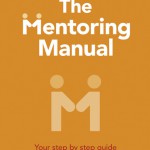Here is the full review for the Mentoring Manual published in APM’s Project magazine Summer 2015 edition:
Book title The Mentoring Manual
Author (s) Julie Starr
ISBN number 978-1-292-01789-1
Publisher Pearson Education Limited
Price £14.99
It makes you look at mentoring from a different angle – helping you recognise where existing relationships may already adopt the role of mentor, and how to distinguish mentoring from other relationships.
The book encourages you to take on the theory as you work through it, even if you don’t fully accept the concepts rather than re-engineering to enhance your own methods.
The book benefits project managers in that it has short exercises to practice which are easy to follow and not too time consuming – this helps the reader fully grasp the methods and can benefit from quick win scenarios (ideal for those working in busy environments). PMs ideally should be nurturing their teams and the book uses business scenarios which can be aligned to your current needs. The book takes a common sense approach to delivering and makes you think about how mentees might receive information, a trait I would say is required for a PM, however to have a refresh is always good practice. This would make an ideal beginner’s book for PMs new to mentoring and is ideal reference material to keep on the shelf to go back to as it doesn’t need to be read from start to finish in one go. The general theme is about working on relationships, therefore perfect for any PPM professional who could benefit from assistance in this area. Arguably it is the relationship management which harvests the best results within projects and programmes. It’s not PM specific, so it is also good for all management professionals, it is this generalist approach which does however feed well into any given scenario – as PM can be very diverse this lends itself well to the field.
There is a split between self help content and practical detail, the switch between the two makes for a different approach to this type of book.
You are encouraged to question your approach and as such this will shape your methods and management style in a positive way as it really tries to embrace how our actions are viewed from all angles.




